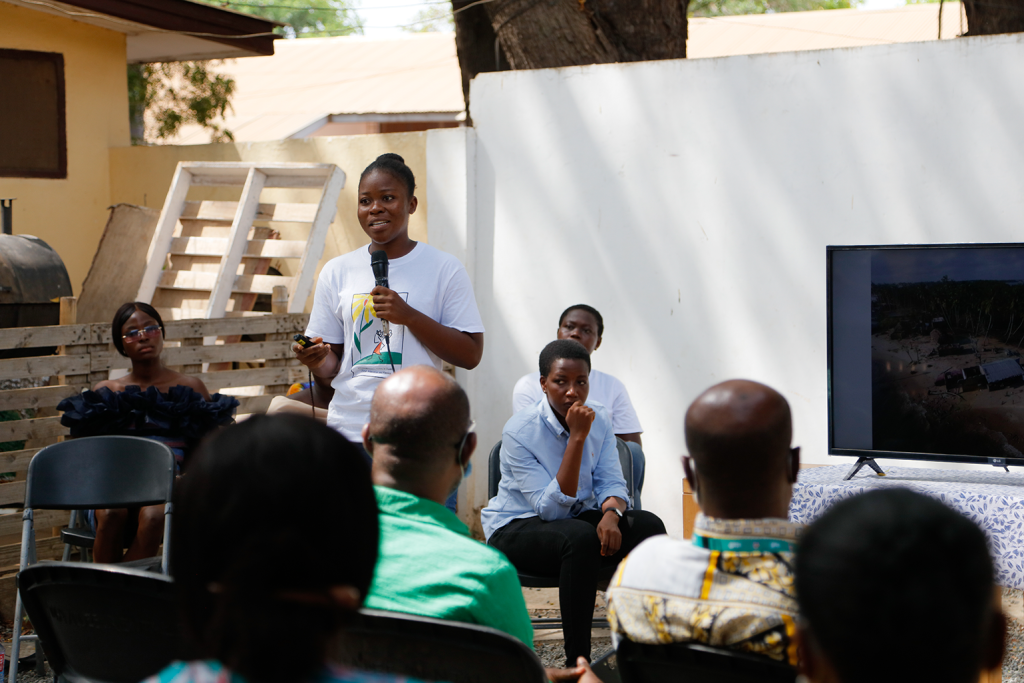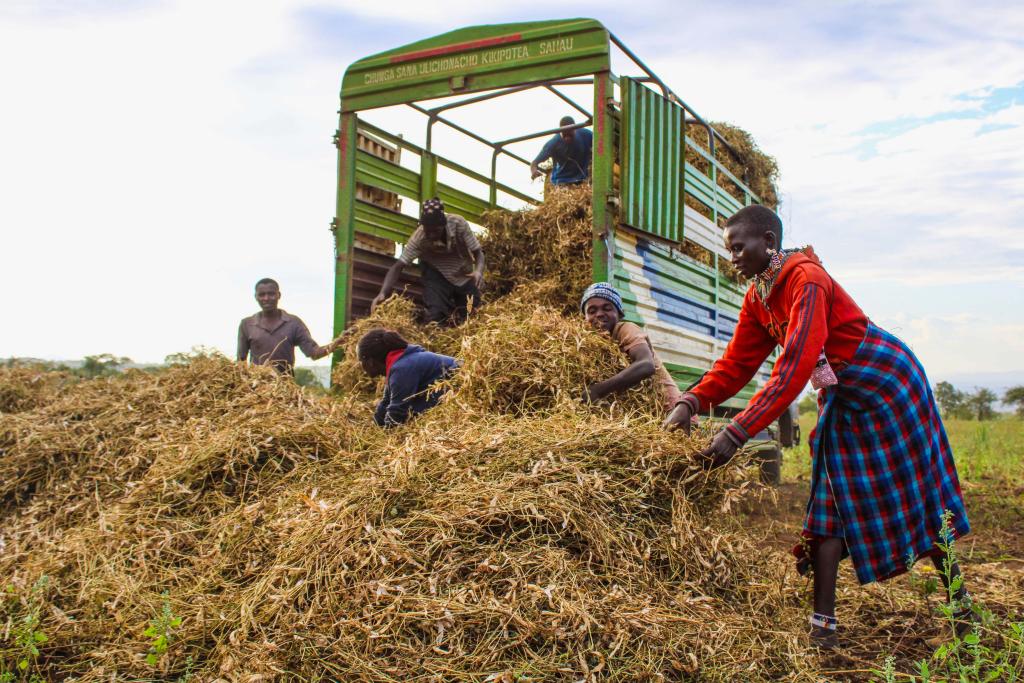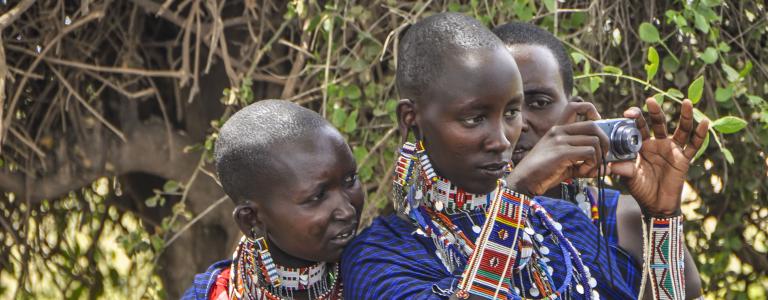Envisioning Resilience
Amplifying women’s voices in climate change adaptation planning
Through the Envisioning Resilience initiative, women on the front lines of climate change are developing their skills in photography and storytelling, learning about climate impacts in their region, and sharing their visions of resilience with decision-makers involved in National Adaptation Plan (NAP) processes.
It is well-documented that the impacts of climate change are not gender neutral. Women disproportionately suffer the consequences of climate change due to the inequitable distribution of roles, resources, and power. Despite this, women remain underrepresented in adaptation decision-making processes.
Led by national governments, the NAP process enables countries to build the resilience of their ecosystems, economies, and communities to the impacts of climate change. As they are intended to be participatory and gender responsive, the NAP process presents an opportunity to facilitate dialogue between adaptation decision-makers and women on the front lines of climate change. However, there are challenges in creating appropriate spaces and finding a common language to talk about climate change, its impacts, and strategies for building resilience.
Founded by the NAP Global Network and Lensational in 2021, with financial support from Global Affairs Canada, Envisioning Resilience aims to address these challenges.
The initiative trains underrepresented women in photography and storytelling, enabling them to develop visual stories that capture their experiences with climate change and their visions of resilience. These stories then provide a basis for dialogue with decision-makers toward a shared understanding of the effects of climate change on women’s lives and the adaptation priorities for their communities. Further, the process supports economic empowerment by offering to sell the trainees’ photographs on Lensational’s online platform.
The pilot phase was implemented in Ghana and Kenya, in close collaboration with the Environmental Protection Agency in Ghana and the Climate Change Directorate in Kenya.

Photo: Participant of the Envisioning Resilience initiative telling the story behind her photo that shows the impacts of climate change on her life. Credit: Dennis Nipah, Ghana (2021).

Photo: To manage through shortage of pasture, Kenyan people accumulate stubble remains from everything they harvest and use it to feed cattle. Credit: Esther Tinayo, Envisioning Resilience, Kenya (2021)
Following the success of the pilot initiatives and with the continuous financial support provided by Global Affairs Canada, Envisioning Resilience welcomes GirlsCARE as a new partner in 2023 and begins a new phase of work in Jamaica.
Related Content
Envisioning Resilience: Bringing underrepresented women's voices into planning for climate change adaptation
IISD Success Story
Photoblog | Women's Voices on Climate Change in Ghana and Kenya
Selection of photos and stories from Ghana and Kenya.
Elevating Women’s Voices in Climate Change Adaptation Through Visual Storytelling
Introduction to the initiative.
NAP Global Network Progress Report 2021-2022
View pages 30 & 31
News: Maasai women using cameras to tackle climate crisis
Videos | Elevating Women’s Voices in Climate Change Adaptation Through Visual Storytelling
Media Advisory | Photo Exhibit and Dialogues With Adaptation Decision-Makers in Jamaica
You might also be interested in
NAP Global Network
Supporting developing countries to accelerate climate change adaptation efforts around the world.
Envisioning Resilience: Women's Voices on Climate Change in Ghana and Kenya
As countries advance their National Adaptation Plan (NAP) processes, the need for meaningful participation by people on the frontlines of climate change becomes increasingly clear.
Envisioning Resilience: Bringing underrepresented women's voices into planning for climate change adaptation
Meaningful participation by women who are on the front lines of climate change is essential for gender-responsive, locally led adaptation. However, in many contexts, women remain underrepresented in decision making, from local to national levels.
Gender-Responsive National Adaptation Plan (NAP) Processes: Progress and promising examples
This document is the third in a series of synthesis reports that assess progress on gender-responsive approaches in National Adaptation Plan (NAP) processes at the global level. The progress shown in this report demonstrates the potential of NAP processes as a mechanism for ensuring that climate action addresses gender and social inequalities.




